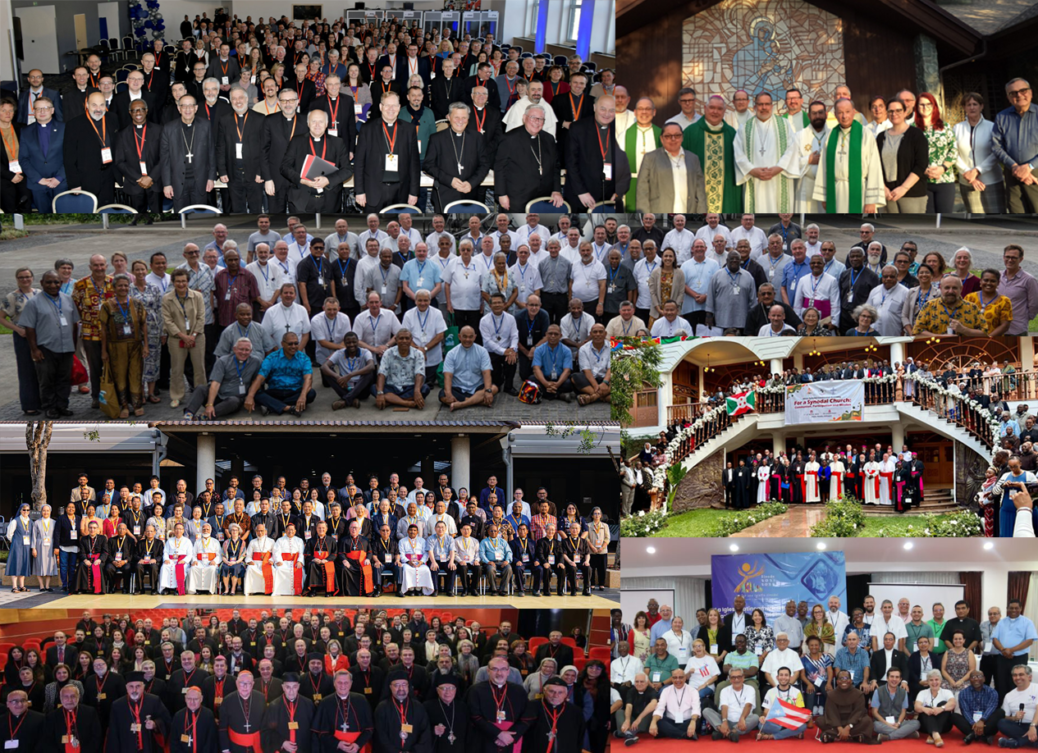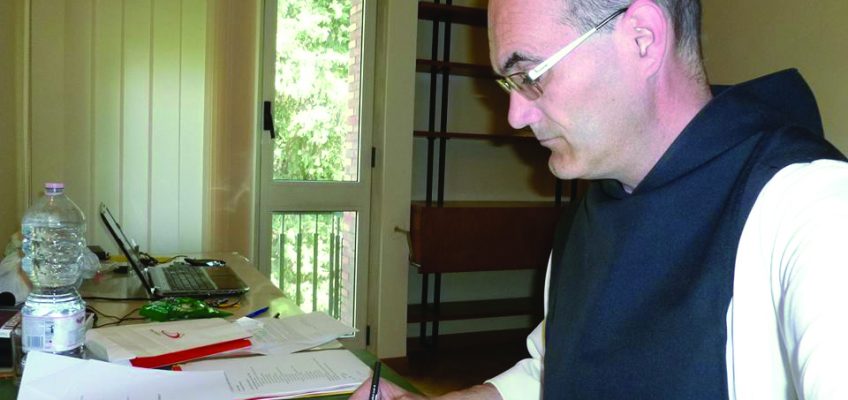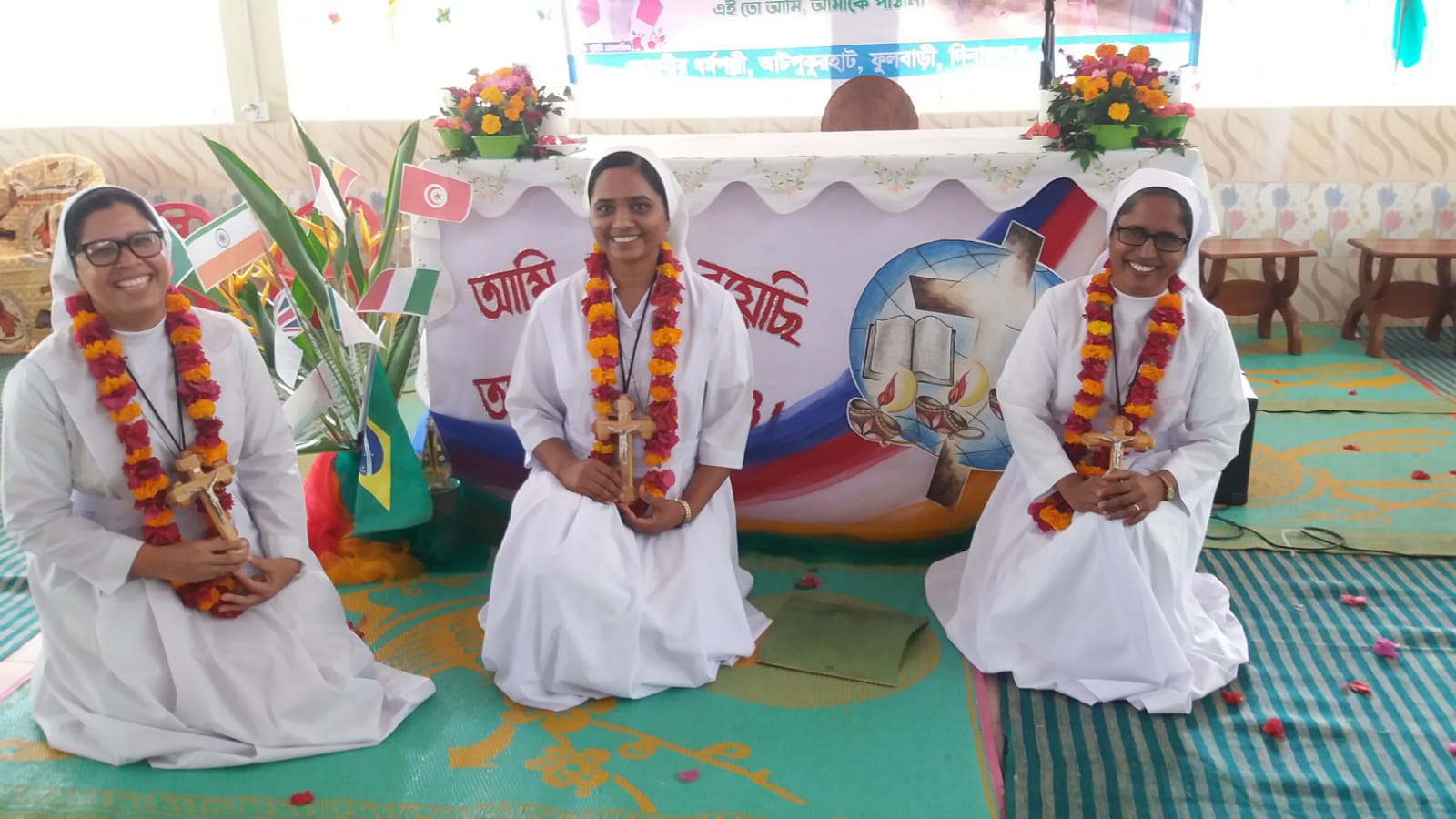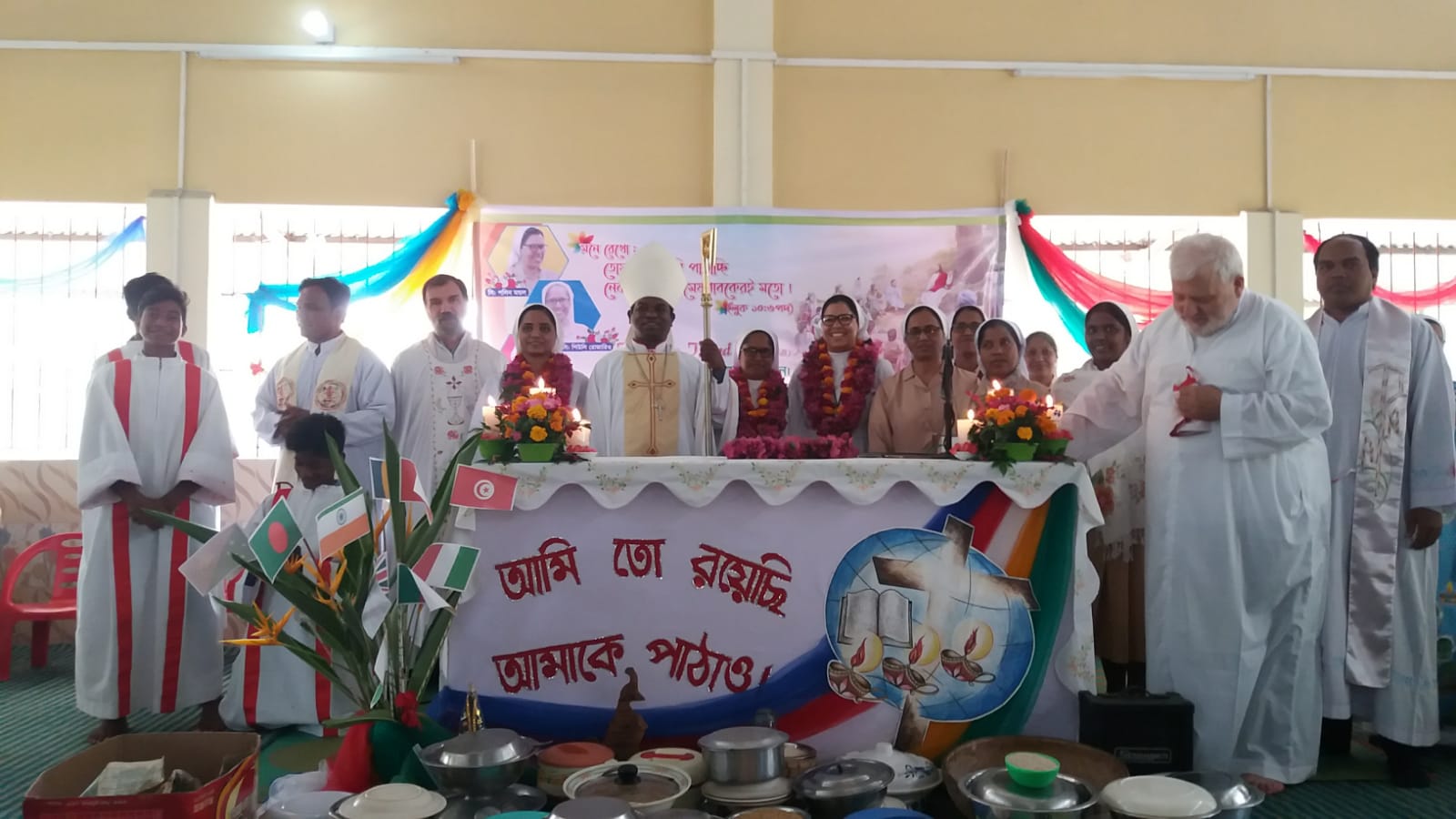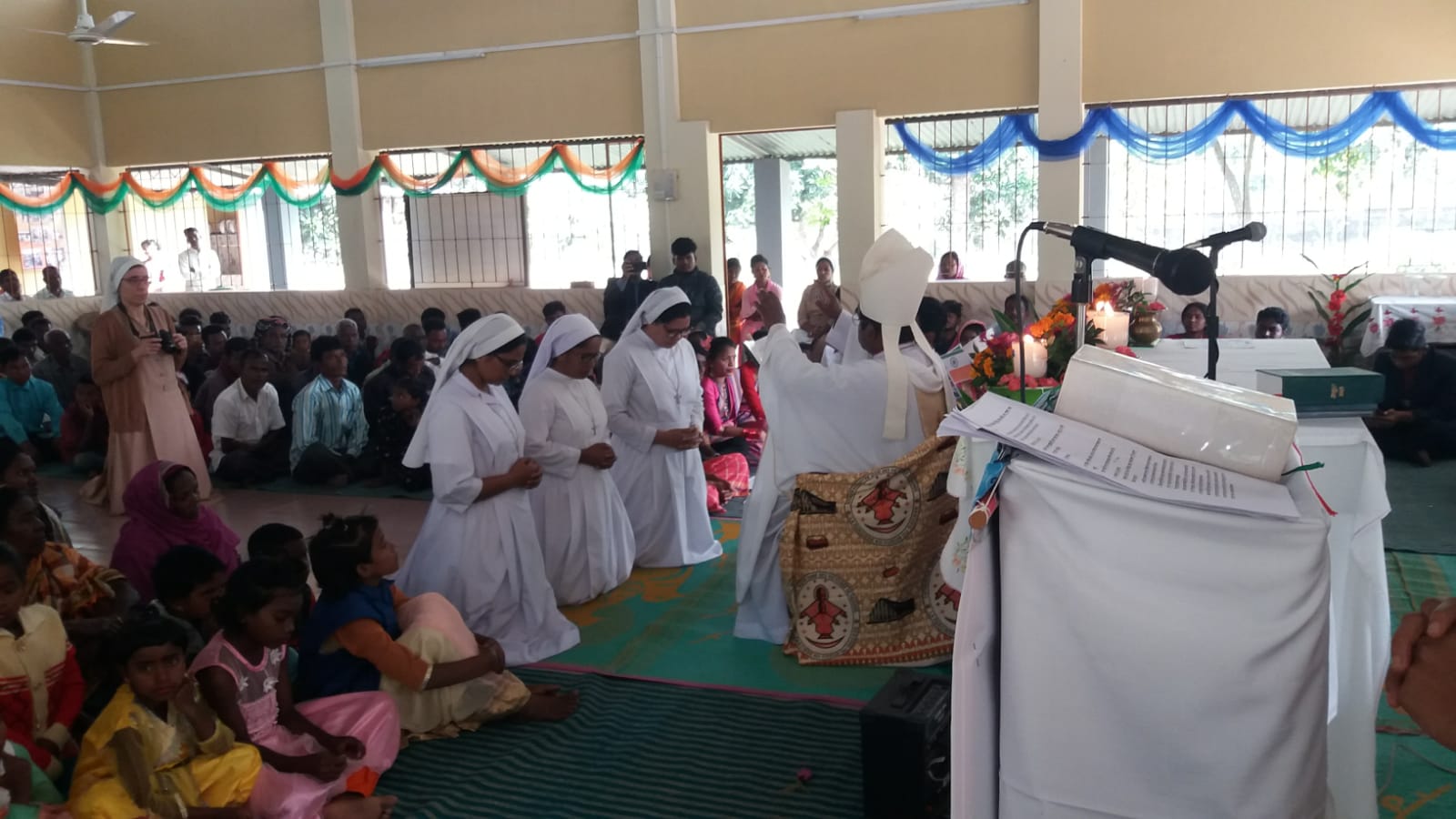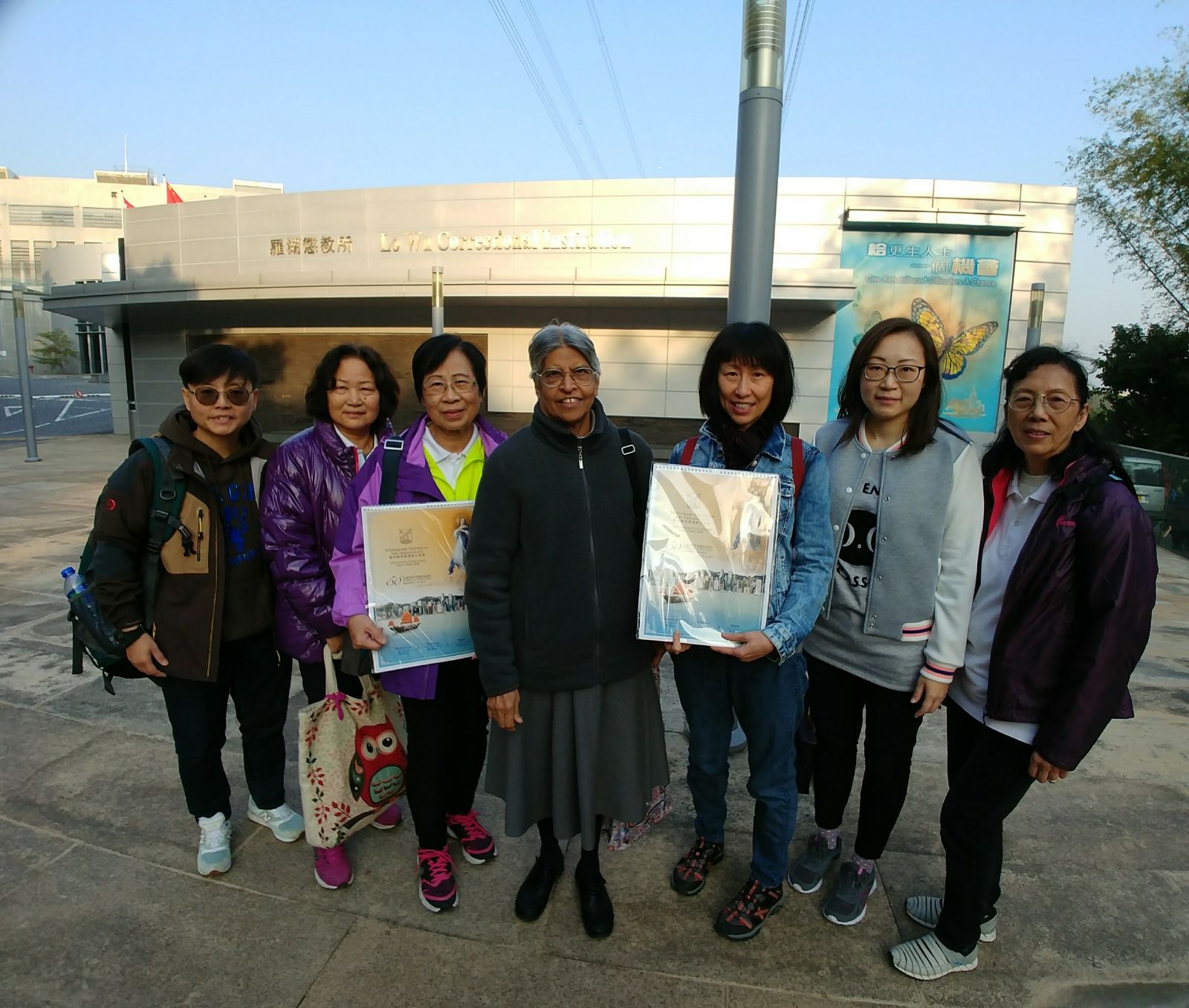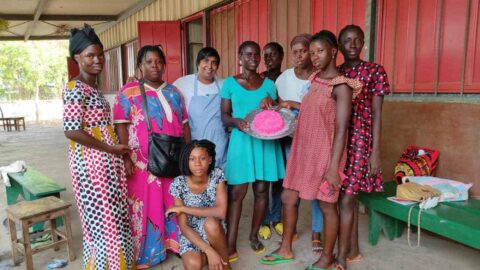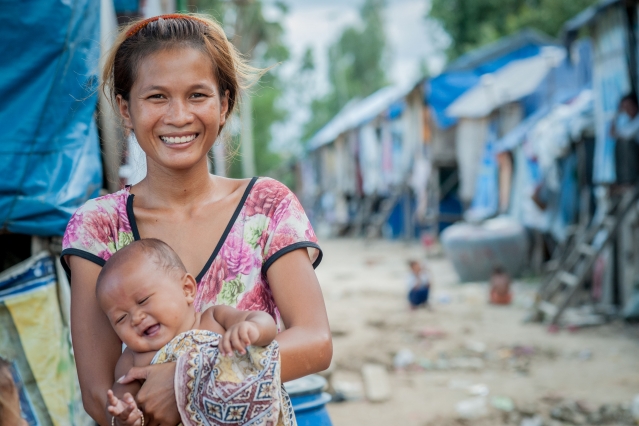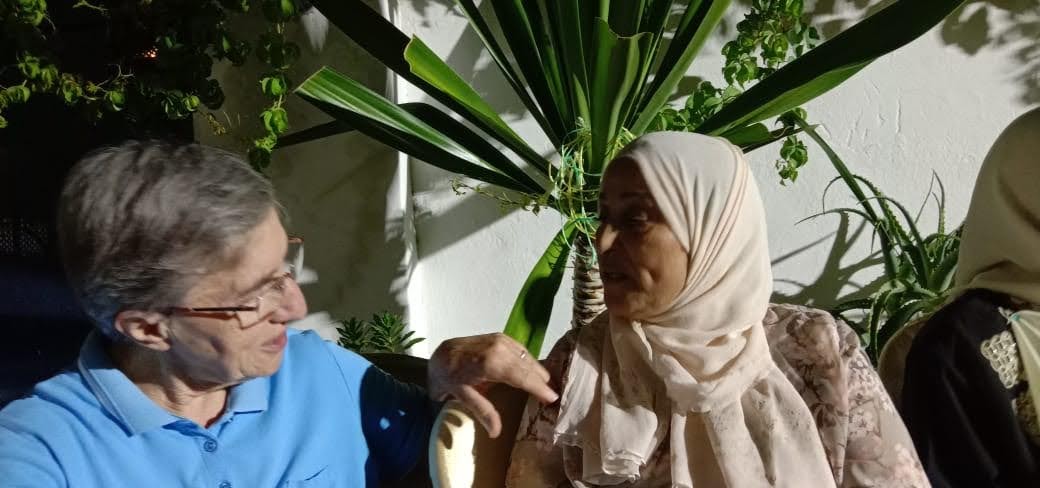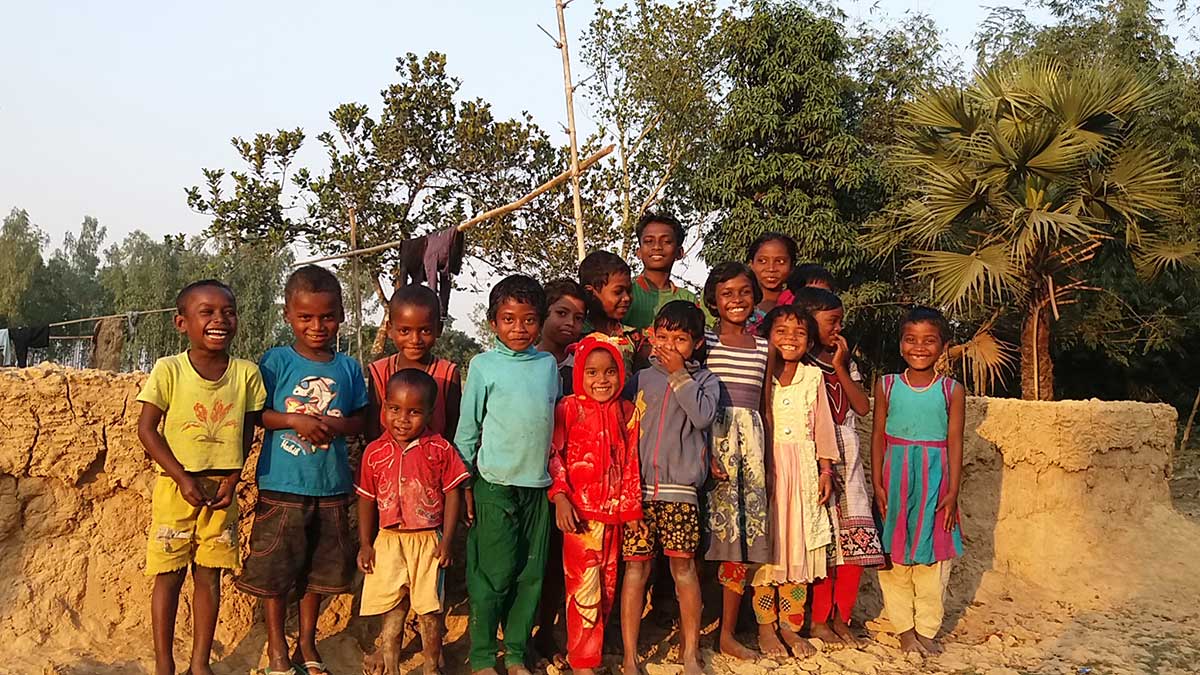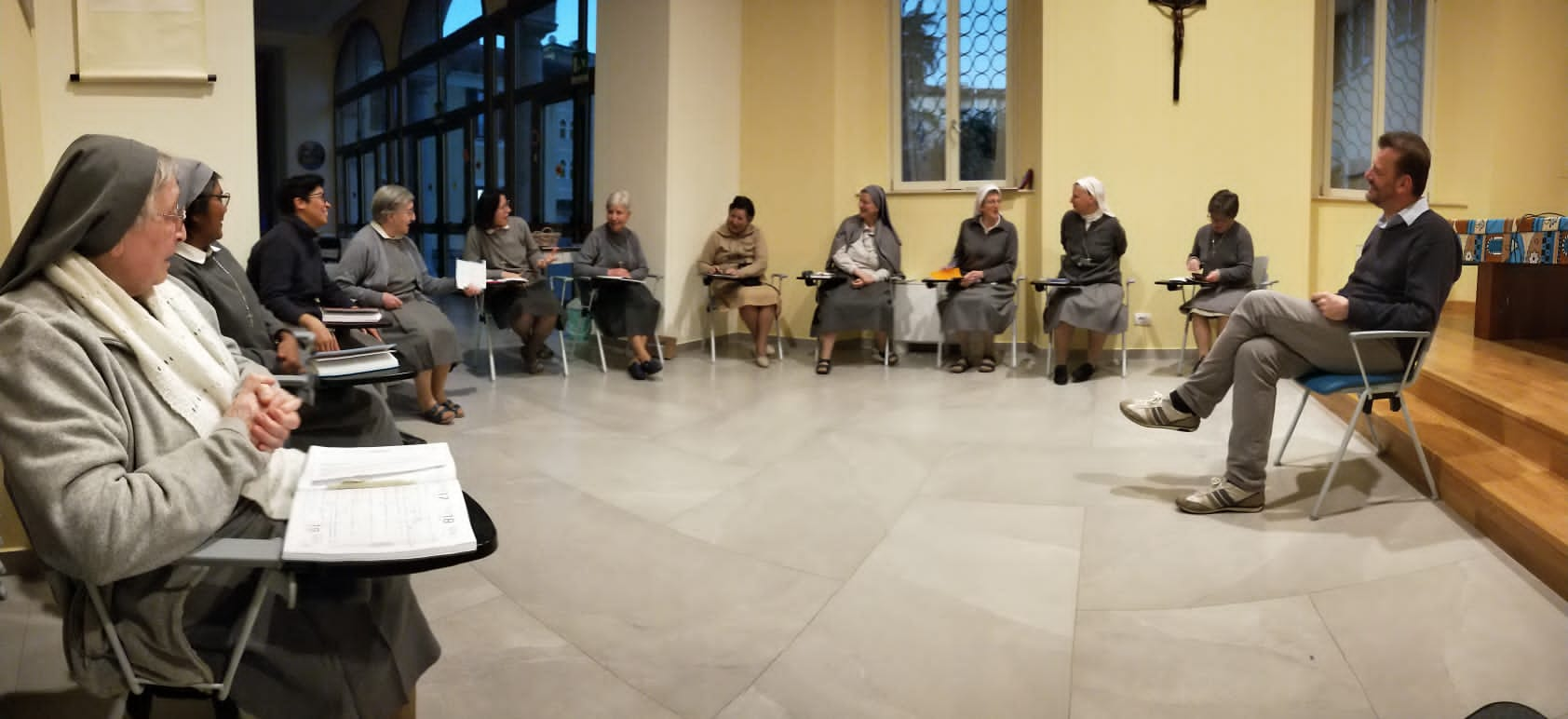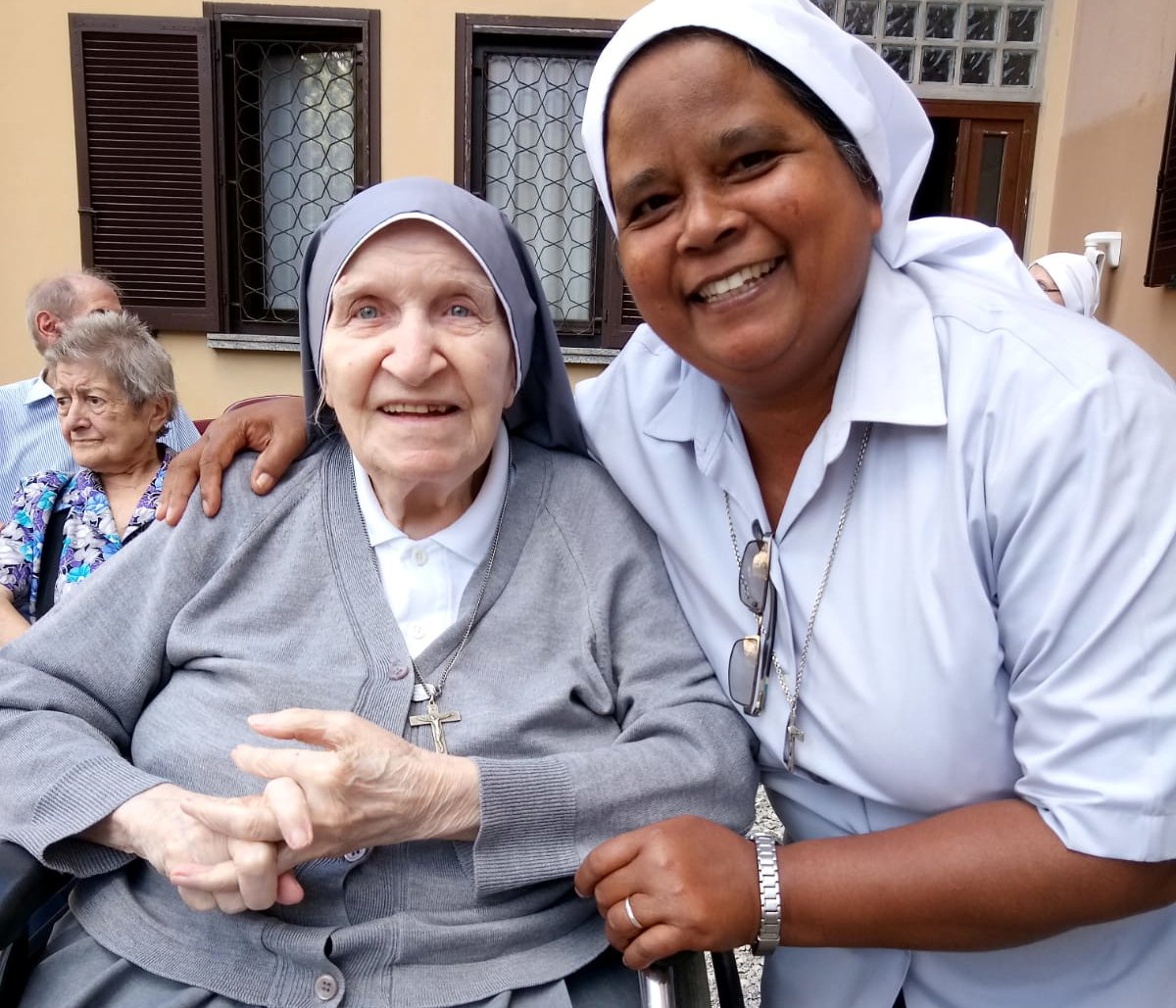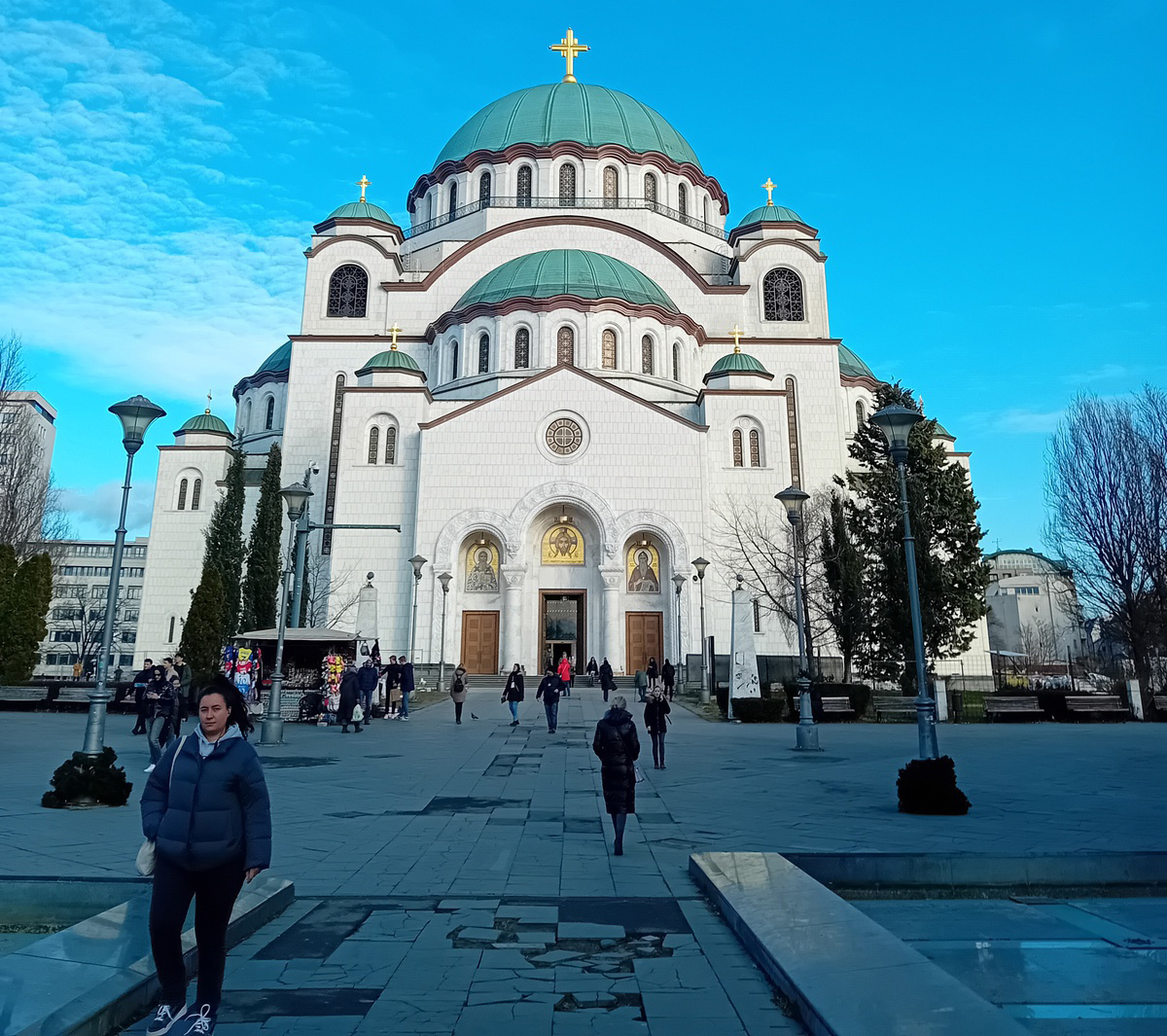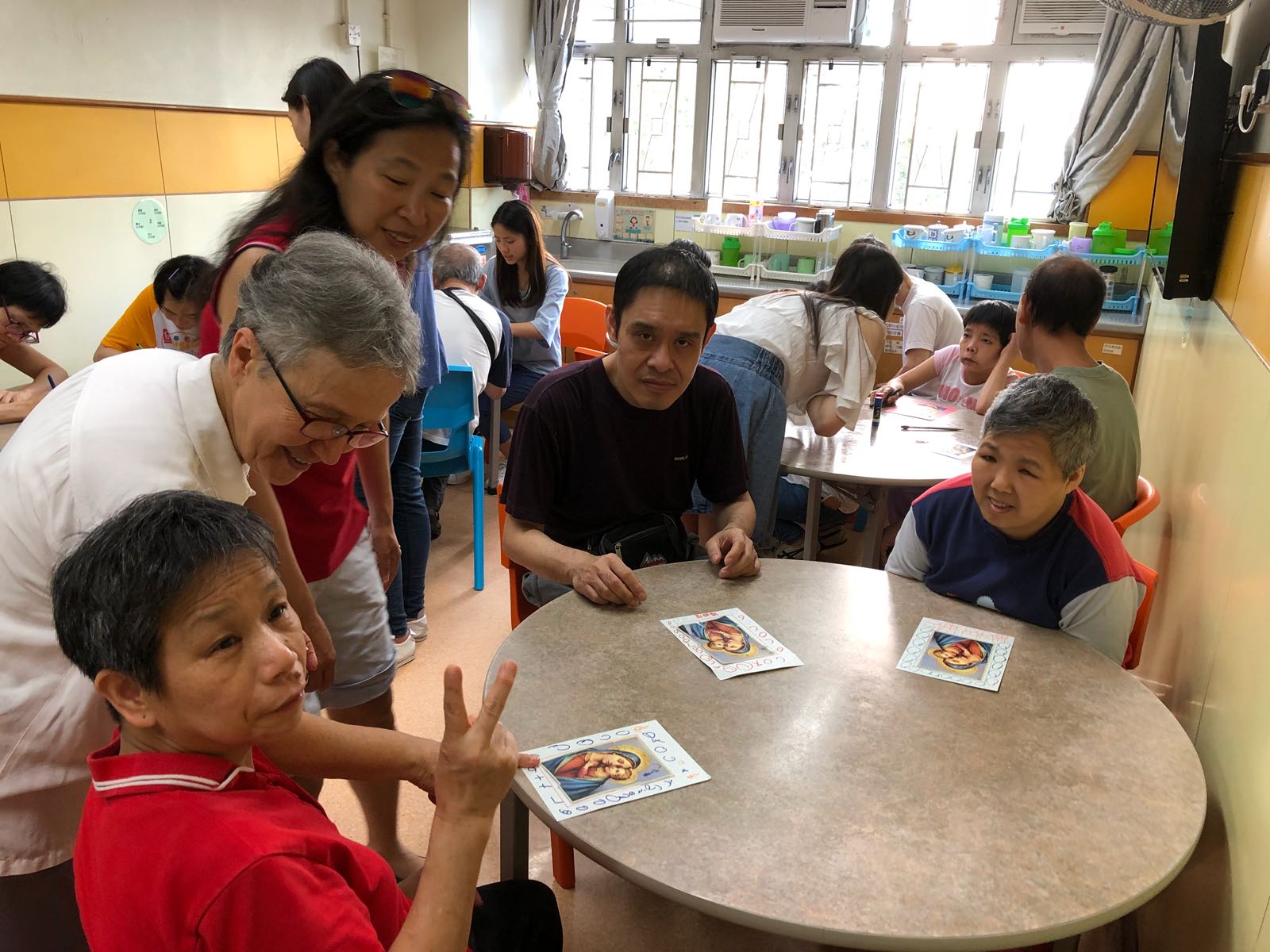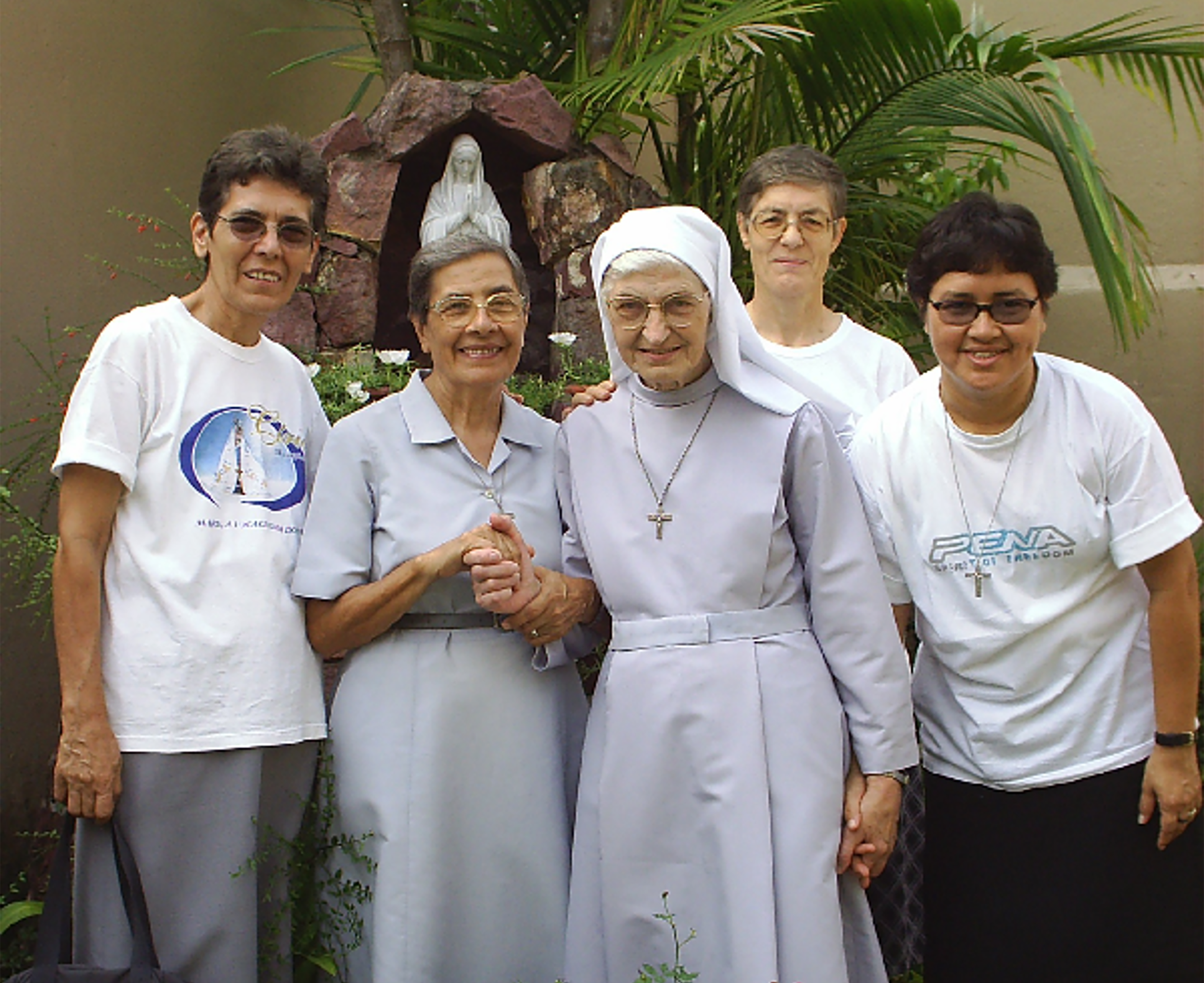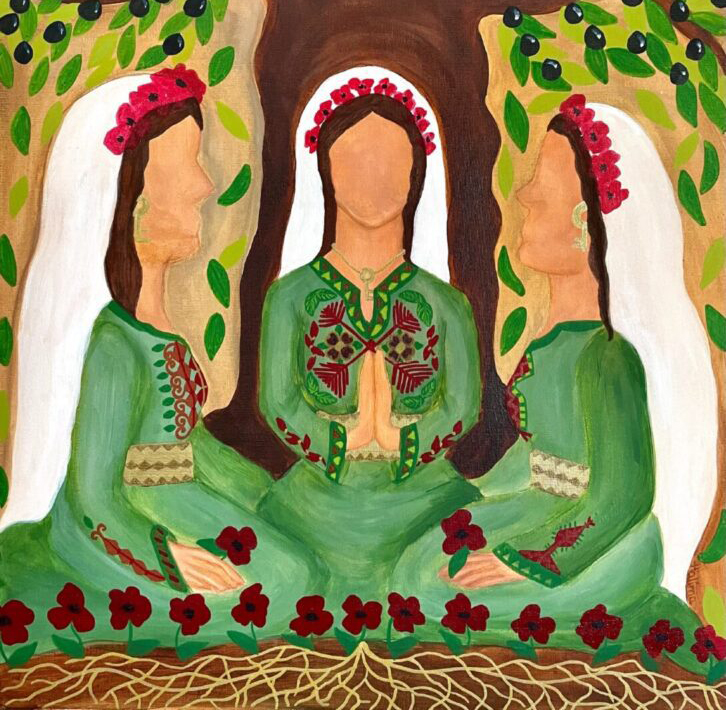In Prague for the European continent, in Suva in the Fiji Islands for Oceania, in Bangkok for Asia, in Beirut for the Middle East, in Orlando for North America and in Bogota for South America, in Addis Ababa for Africa: These places welcomed the continental Assemblies in preparation for the October synod. Sr. Gabriella has the opportunity to participate in the assembly for Africa, in Ethiopia, from 1 to 6 March, with the delegation of CERNA, the episcopal conference of North Africa.
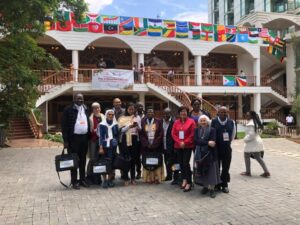 The first interesting thing I experienced was the composition of our delegation. There were ten of us. From Morocco, the cardinal of Rabat and George, a university student from Guinea Conakry; from Tunisia: Hatem, a Muslim journalist, Abderrazak a Tunisian Christian from Islam, Olivia, a consecrated laywoman. From Algeria, in addition to Bishop Msgr. John, of the diocese of Ghardaia, there was the representative of the bishops of Cerna al Secam, and Fr. Michel, secretary of Cerna. For the diocese of Algiers, we were three: Algerian lay woman Linda, Fr. Théoneste, Rwandan, and me as the coordinator of the team for the work of preparation for the synod.
The first interesting thing I experienced was the composition of our delegation. There were ten of us. From Morocco, the cardinal of Rabat and George, a university student from Guinea Conakry; from Tunisia: Hatem, a Muslim journalist, Abderrazak a Tunisian Christian from Islam, Olivia, a consecrated laywoman. From Algeria, in addition to Bishop Msgr. John, of the diocese of Ghardaia, there was the representative of the bishops of Cerna al Secam, and Fr. Michel, secretary of Cerna. For the diocese of Algiers, we were three: Algerian lay woman Linda, Fr. Théoneste, Rwandan, and me as the coordinator of the team for the work of preparation for the synod.
We all did not know each other and we created a small active and fraternal group with three zoom meetings before departure, commenting together on the Kampala document and the continental one of the synod. We arrived in Ethiopia two days before the Assembly. We were guests of the Petits Freres de saint Jean. We visited the city and its surroundings and above all, we became friends.
At an altitude of between 2,300 and 2,600 meters, Addis Ababa, seat of the African Union, is the highest capital in Africa, with almost 9,000,000 inhabitants. Out of 110 million Ethiopians, about 50% are Orthodox, 20% Protestant, 1% Catholic, 20% Muslim and the rest belonging to traditional religions. Coexistence between religions, and an extraordinary history.
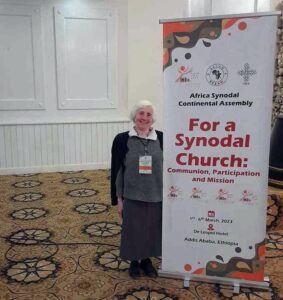
Sr. Gabriella Tripani at the synod
At the assembly, organized by the Symposium of the Episcopal Conferences of Africa and Madagascar (SECAM), there were 209 participants from 41 countries of the African continent. There were some guests from the General Secretariat of the Synod, from sister Christian churches and from other religions such as our Muslim Hatem and someone from traditional African religions. 9 cardinals, 29 bishops, 41 priests; more than half of the participants were lay people, including 50 women and 35 young people. Absolutely the first time that such a varied assembly met in Africa: previously the continental meetings were only of the bishops of the various episcopal conferences.
Day after day we mingled more and more, at the table, in small study groups, in the corridor moments, on trips to visit the headquarters of the African Union or for shopping…
Jesuit Father Giacomo Costa explained the method of spiritual conversation that we used in small groups, each of about fifteen people, carefully chosen from different countries and vocations: perhaps the most precious moment that gave everyone the opportunity to express themselves.
Father Emmanuel Orobator, also a Jesuit, proposed a lively and suggestive reading of the Continental Synodal Document and handed over the questions for work in the groups: what is the intuition that resonates most in us and can help us grow as a synodal missionary Church? What question or anxiety the bishops should address next October in the universal phase of the synod?
Each group was invited to justify the priorities they highlight. Following the group work and the plenary meetings, an initial draft of the final document to which the groups are still invited to react was presented.
To those of us from Maghreb, it seemed that a discourse on relationship with the Muslim world, on the theme of dialogue, of working together for the values of the Kingdom was not present sufficiently. Rather, it was in favor of an ecclesial insistence ad intra.
The Continental Synodal Assembly was the experience of a living Church, aware of its wounds and its values, open and inclusive, but also fearful of the negative influences of the West, eager to widen its tent without replacing the beloved image of the family church, which emphasizes attention to the other, solidarity, warmth in relationships, acceptance, dialogue and trust. Cardinal Ambongo of Kinshasa, who is part of the small College of Cardinals that the Pope consults regularly, insisted on this idea – the strength of the Church, the synodal family of God, also referring to the bitter experiences of the continent (Kampala Document 56), to conflicts, racial tensions, injustices, political instability. He expressed the desire that the synodal journey lead to concrete transformations, valuing listening, the ability of all, pastors and faithful, to enter the world of the other and understand the voice of the Spirit.
Sr. Gabriella Tripani, Algeria and Tunisia Delegation
From the final communicate – French
L’Église synodale en Afrique
En tant que Famille Synodale de Dieu en Afrique, nous affirmons et célébrons notre dignité baptismale commune qui nous fait vraiment nous sentir pleinement chez nous dans une Église Synodale, où toutes les vocations sont valorisées.
En tant que Famille synodale de Dieu, nous sommes une Église à l’écoute. Nous écoutons sans juger, surtout ceux qui ne se sentent pas suffisamment reconnus dans l’Église. Nous acceptons l’invitation de la synodalité à écouter ceux qui se sentent exilés, délaissés et exclus de l’Église. Nous reconnaissons que lorsque nous faisons cela, les autres se sentent les bienvenus et sont libres de partager leur propre cheminement spirituel.
En tant que Famille synodale de Dieu, nous recherchons une conversion et une réforme authentiques. Nous nous engageons à surmonter les structures hiérarchiques rigides, les tendances autocratiques malsaines, le cléricalisme nuisible et l’individualisme isolant qui minent et affaiblissent les relations entre évêques, prêtres et laïcs. Ces mauvaises herbes nous confrontent au défi d’approfondir notre expérience de la synodalité, de réfléchir à ce que signifie marcher ensemble dans des moments de tension.
Une Famille Synodale de Dieu en Mission
En tant que Famille synodale de Dieu en Afrique, nous ne fuyons pas les réalités vécues de notre continent : les blessures des Africains sont aussi les blessures de la Famille synodale de Dieu. Au cours de notre Assemblée Synodale Continentale, nous avons ressenti la douleur et la souffrance de nos sœurs et frères d’Afrique. La Famille synodale de Dieu marche avec ceux qui sont touchés par la guerre, les conflits ethniques, l’intolérance religieuse, le terrorisme et toutes les formes de conflit, de tension et de violence. Avec solidarité, compassion et charité, l’Église synodale en Afrique chemine avec nos sœurs et nos frères en détresse.
Lors de notre Assemblée Synodale Continentale, nous avons entendu la voix des jeunes. L’Église en Afrique est dynamique grâce à l’énergie, la passion et la créativité des jeunes. Leur contribution à la mission et au ministère de l’Église est un don pour l’édification d’une véritable Église synodale en Afrique. Les jeunes ont une place importante et un rôle central dans la Famille synodale de Dieu en Afrique.
Au cours de notre Assemblée Synodale Continentale, nous avons cheminé avec les femmes qui ont participé activement au processus d’écoute, de dialogue et de discernement. Nous avons appris d’eux comment être une Église synodale. Les femmes africaines maintiennent l’Église ensemble; ils sont majoritaires. Les femmes africaines sont l’épine dorsale de l’Église. Cheminer ensemble en tant qu’Église synodale signifie reconnaître leurs dons, leurs talents, leurs charismes et leurs contributions. Pour les femmes d’Afrique et du monde entier, la synodalité est une opportunité de « participation pleine et égale » à la vie de l’Église. Les femmes sont un don pour l’Église. Il est impossible qu’une véritable synodalité puisse se produire dans l’Église si les femmes ne sont pas considérées comme des partenaires égales.
Une Église synodale de conversion et de réforme
Pour vaincre et extirper les mauvaises herbes du cléricalisme, de l’autoritarisme et de l’indifférence, nous désirons engendrer de nouvelles formes de leadership …
…Nous désirons faire naître une culture de la synodalité comme manière habituelle de procéder dans l’Église.
… Animés par l’esprit d’interculturalité, d’œcuménisme et de rencontre interreligieuse, nous marchons ensemble, appréciant les différences culturelles, comprenant ces particularités comme des éléments qui nous aident à grandir. Nous écoutons la spiritualité et la sagesse des peuples autochtones et des cultures locales.
Conclusion
… En tant que Famille synodale de Dieu en Afrique, nous voulons marcher ensemble dans la joie. Nous remercions Dieu qui nous a réunis et guidés par l’Esprit du Christ ressuscité. …
Que Dieu bénisse l’Afrique !
5 mars 2023, Addis-Abeba, Éthiopie
Infographic of the continental stage



